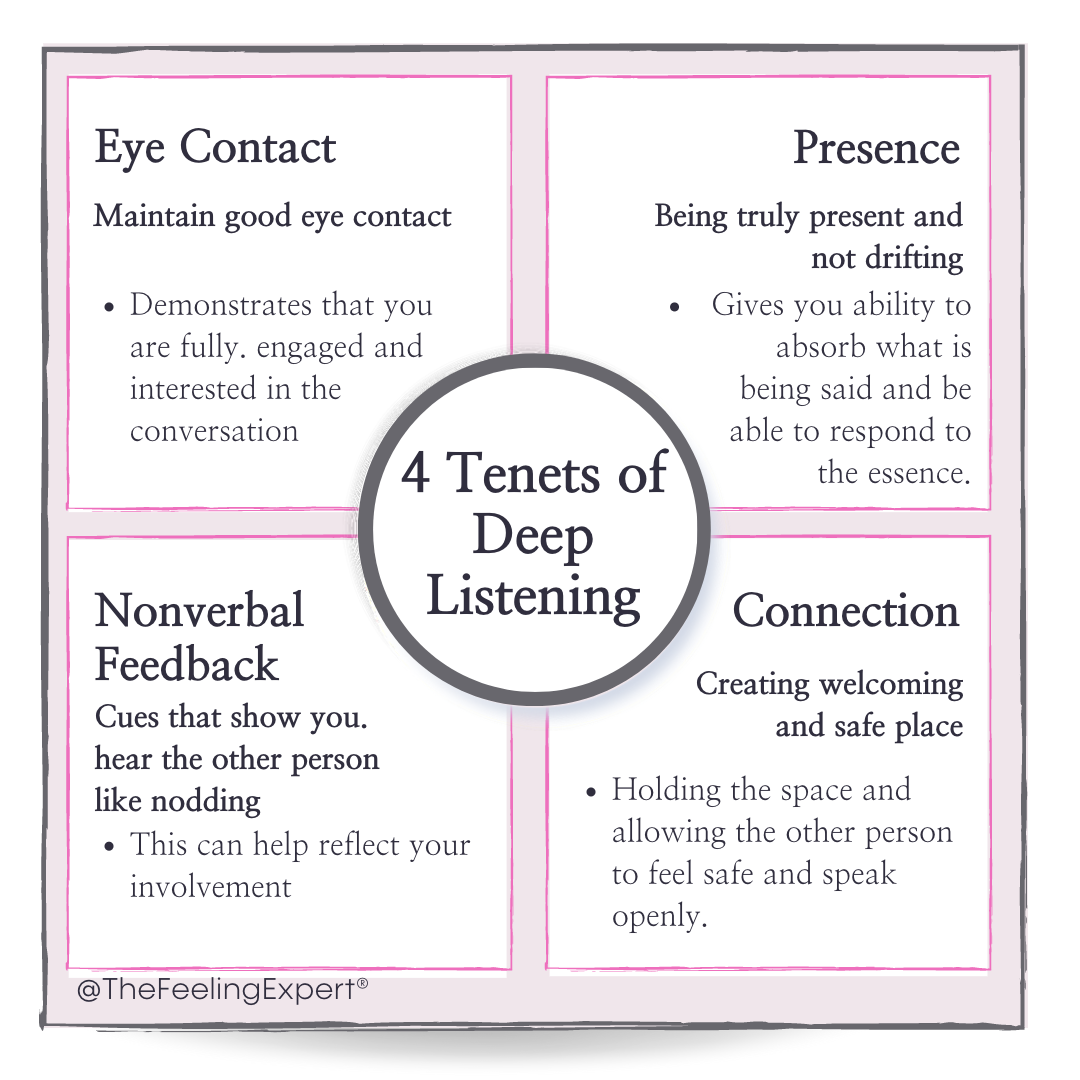
Deep listening is an essential component of effective communication in conversations. It involves fully focusing your attention on what the other person is saying, understanding their message, and responding thoughtfully. Deep listening goes beyond just hearing the words someone is saying; it involves being fully present and engaged in the conversation
Here are some of the reasons why deep listening is important in conversations:
In summary, deep listening is an important skill to have in conversations, as it can help to build trust, promote understanding, encourage empathy, improve communication, and reduce misunderstandings. By making an effort to listen deeply to others, you can enhance your relationships and communicate more effectively.
The Feeling Expert is licensed to provide in-person, online video or phone holistic psychotherapy and mental health counseling throughout the state of Florida.
Sign up for tips and insights delivered straight to your inbox: Mindful Healing: Insights to Heal Your Past & Thrive. Get tips to help you as you heal from trauma, connect with your authentic self, and create balance in your daily life.